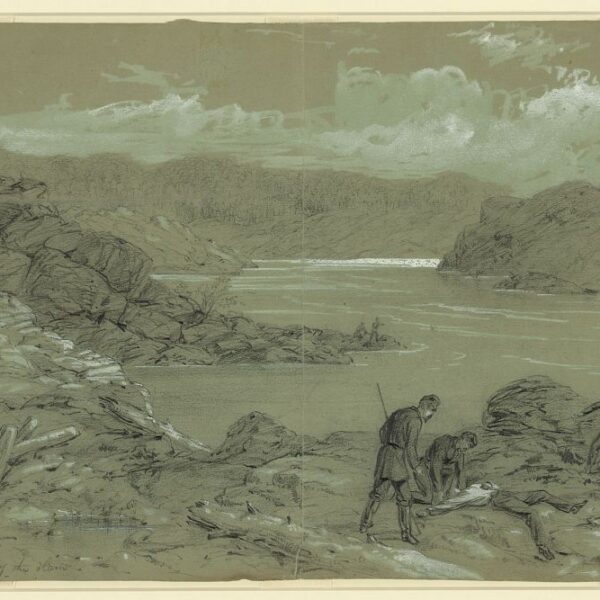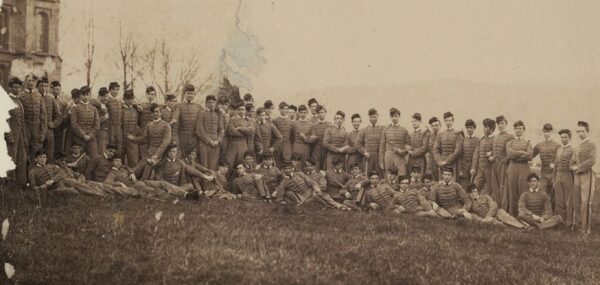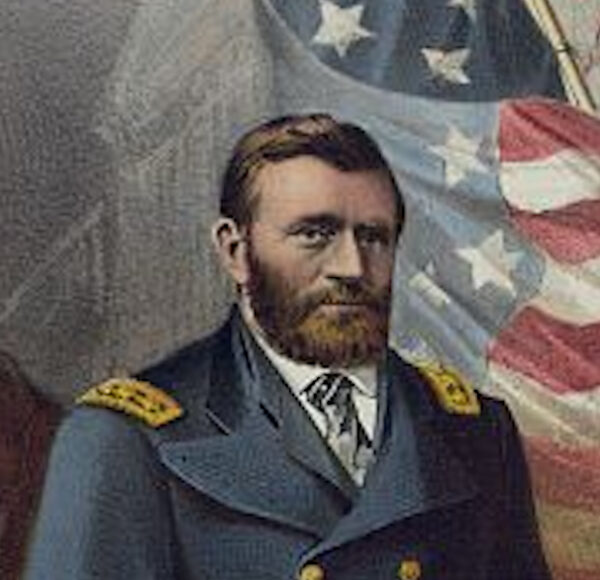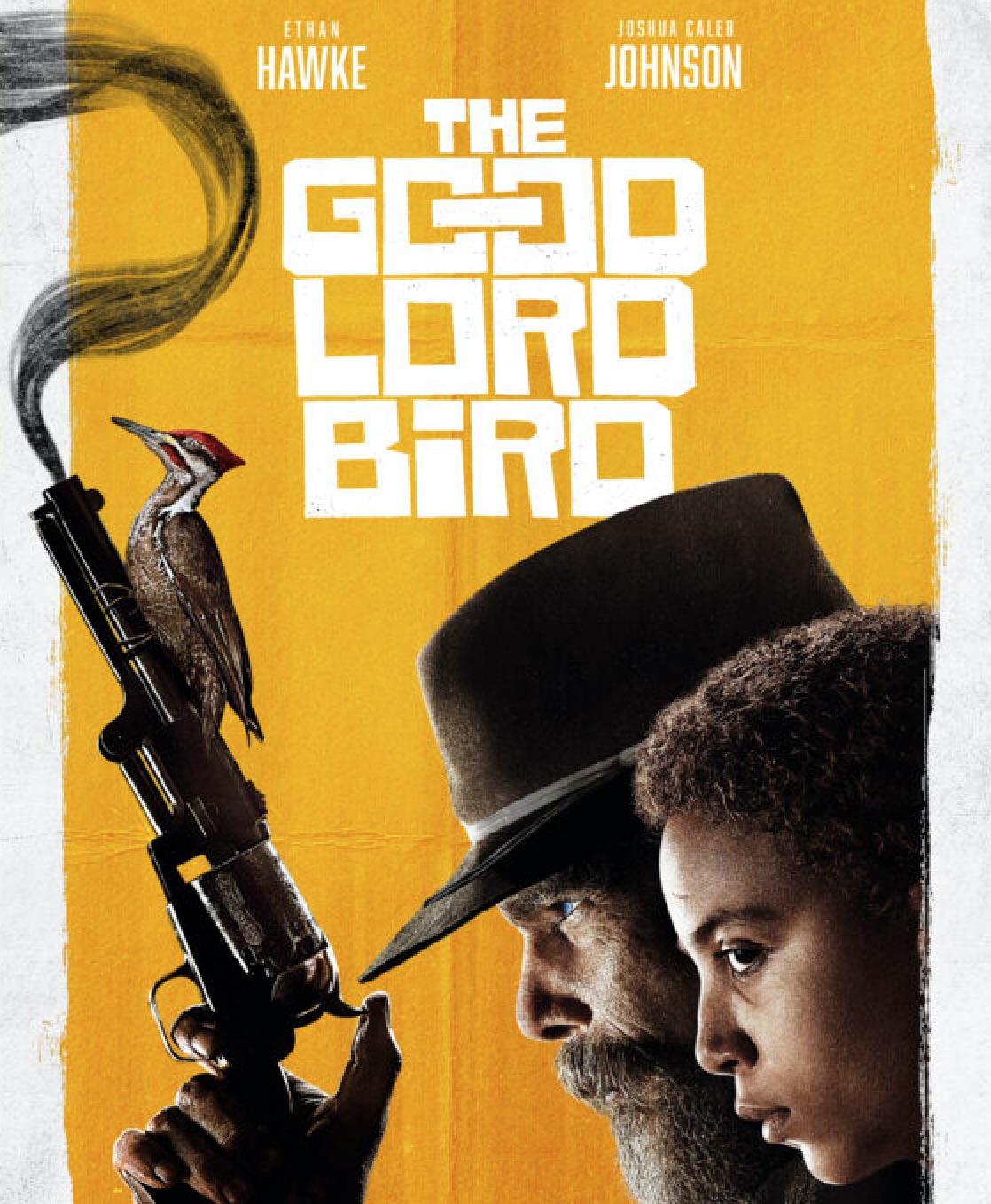
On October 4, 2020, The Good Lord Bird, a 7-part miniseries about the life of abolitionist John Brown—based on the award-winning novel of the same name by James McBride—premiered on Showtime. We enlisted historian Megan Kate Nelson to watch and review the series, episode by episode. We’ll publish her takes below, as each episode airs. Episode Seven: “Last Words” (aired November 15, 2020)
The final episode of The Good Lord Bird depicts the end of the Harpers Ferry Raid and John Brown’s time in jail before his hanging on December 2, 1859, and it ties up most of the series’ loose ends.
In a voiceover, Frederick Douglass (Daveed Diggs) talks about Brown’s failure at Harpers Ferry (“no man fails or can ever fail who so grandly gives himself and all he has to a righteous cause”) as Brown and several others charge out of the Engine House, creating a diversion so that other members of the gang—including Onion (dressed now as a boy)—can escape.
Bursting outside, Onion is immediately surrounded by soldiers. To save himself, Onion lies and says he is a slave. This lie works because, as the black men in Brown’s gang discuss the night before, “They can’t tell the difference between us no way. You can make it. And when you do, make your own freedom.”
A soldier takes him back to the Kennedy farm, where Owen (Beau Knapp) claims Onion as his slave. Bob (Hubert Point-Du Jour) is there as well, having survived his jump from the carriage in the previous episode. The three men ride north to Watson’s barbershop, where they seek shelter and advice. Watson (Victor Love) advises them to split up, in order to survive. This is the last Onion sees of Bob and (possibly) Owen and I admit to getting a bit weepy when they parted.
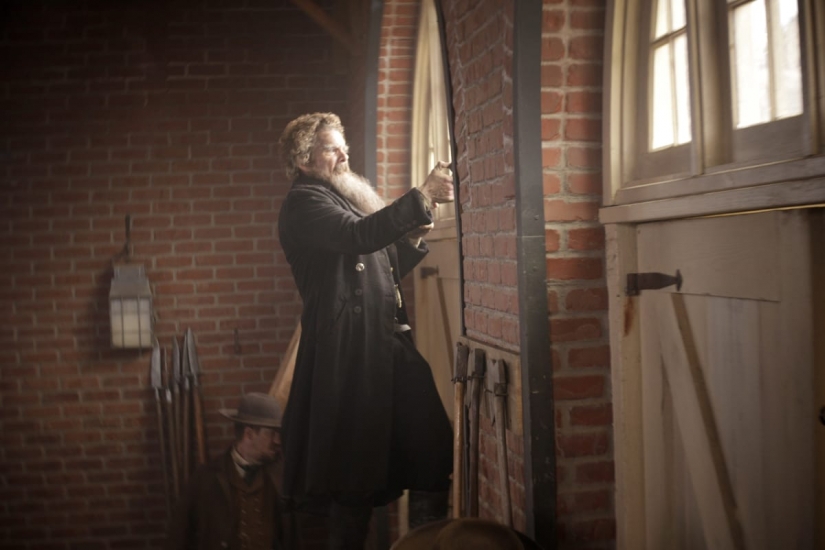
John Brown (Ethan Hawke) makes his last stand at Harpers Ferry in Episode 7 of “The Good Lord Bird.”
Meanwhile, John Brown, who survived the last stand at the Engine House, has been (as Onion puts it) “stirring shit up” while in jail.
“Folks was listening now that a white man was gonna hang,” Onion says. “Not just any white man. The Old man was a Christian who could write. He had friends who could write.” Brown wrote letters from jail that were published across the nation. As a result, Walt Whitman, Henry David Thoreau, and Ralph Waldo Emerson took up the cause. Onion doesn’t know who these famous New England writers are, but he knows that this meant “we were no longer alone.”
When the news comes that Brown will be hanged, Onion wants to go and see him. Watson makes it happen, and Onion and Brown have their final scene together. It is a poignant one.
“It does my heart good to see you, Onion,” Brown says. He has reconciled himself to his death, and sees the good in it.
“It takes a man six to nine minutes to die from a neck hanging,” he says. “I figure I’ll do more for the cause in those precious minutes than I have in my whole life. I’m the luckiest man in the whole world.”
They pray together, each one apologizing for the mistakes they made during the raid. As Onion is leaving, Brown makes sure he still has the Good Lord Bird feather. Onion assures him it is safe.
“The Good Lord Bird doesn’t fly in a flock,” Brown tells Onion. “You know why? The voice of the spirit is gentle. Sometimes you have to fly alone to hear it.”
The next day, Brown walks up the steps to the scaffold. In a voiceover, Onion says, “They say no one heard his last words. But I can imagine him saying: ‘What a beautiful country.’”

Onion (Joshua Caleb Johnson) visits an imprisoned John Brown (Ethan Hawke) in the final episode of Showtime’s miniseries “The Good Lord Bird.”
Brown’s actual last words were written on a note he left in his cell: “I, John Brown, am now quite certain that the crimes of this guilty land will never be purged away but with blood.”
The final scene and credit sequence of the episode shows Onion on a horse, presumably on his way to Annie, at the Brown farm. It is intercut with images of Black women, men, and children, staring straight at the camera. Some are people we have not seen before; others are characters in the series (Pie, Sibonia, Harriet Tubman, Douglass). The Good Lord Bird ends with an extended shot of Onion. First he just looks into your eyes. Then he smiles.
* * *
This was a solid final episode in a very good series about a pivotal moment in American history. The irreverent tone of The Good Lord Bird works well in two ways. First, it reveals the ironies and complications of the “white savior” theme in television shows and movies about abolition and resistance to structural racism in America. Second, it depicts people living in the past as real people, with flaws and desires and dirt under their fingernails. They get drunk. They make mistakes. They have big dreams that fail. They hurt people. And they die.
There is excellent acting throughout. Ethan Hawke chewed the scenery a bit—but so did John Brown, so it worked for the character. He continued to excel in the quiet moments in the series, revealing all of Brown’s vulnerabilities. One quibble: I wish they had not given him light blue contacts to wear; the fact that Hawke’s pupils were not dilating often made him look reptilian. And (not to sound like a stalker, but) Hawke actually has blue eyes, so that decision seems strange. As Onion, Joshua Caleb Johnson was good but not mesmerizing. I kept wondering what it would be like to see a young Michael B. Jordan in this role.
The characters I will remember are those on the margins: Sibonia, Bob, Emperor. I always wanted to know more about Ottawa Jones (Mo Brings Plenty). What an Indigenous man was doing in Brown’s band is an intriguing question, and I wish there had been time to tell his story. Perhaps another novelist will.
Overall, The Good Lord Bird is a series worth your time. It is not entirely historically accurate, but feature films and television series do not need to be. They just need to be historically credible. We need to believe that these people existed, and they did what they did for reasons we can understand. That they fought to free themselves, and others, from a hideous system of oppression. I don’t know about you, but it does my heart good to know this, and to believe that it can happen again.
Megan Kate Nelson is a historian and writer. She is the author, most recently, of The Three-Cornered War: The Union, the Confederacy, and Native Peoples in the Fight for the West (Scribner, 2020).
Other articles in this series:
Review of Episode One: “Meet the Lord”
Review of Episode Two: “A Wicked Plot”
Review of Episode Three: “Mr. Fred”
Review of Episode Four: “Smells Like Bear”
Review of Episode Five: “Hiving the Bees”
Review of Episode Six: “Jesus Is Walkin'”
